Welcome to our free classical music site

Do you write about classical music? Are you a blogger? Want to team up with Classical Connect? Send us a message, let's talk!

Do you write about classical music? Are you a blogger? Want to team up with Classical Connect? Send us a message, let's talk!
This Week in Classical Music: March 10, 2025. Still on the road. Georg Philipp Telemann was born on March 14th of 1681 in Magdeburg. He was the godfather of Carl Philipp Emanuel Bach, whose birthday was last week. CPE Bach’s second name, Philipp, was given in honor of Telemann, Johann Sebastian’s close friend. We hope to play some of Telemann’s music next week. And Arthur Honegger, a member of Les Six, was born on this day in 1892. He was Swiss but born in France, in Le Havre.Permalink
This Week in Classical Music: March 3, 2025. Travel. Three great composers were born this week: Antonio Vivaldi, on March 4th of 1678, in Venice; Maurice Ravel, on March 7th of 1875, in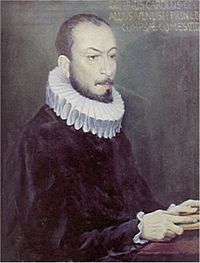 Ciboure, near Biarritz in France; and the notorious Carlo Gesualdo, on March 8th of 1566, most likely in Venosa, where Gesualdos were the princes (Venosa is located in the southern Italian region of Basilicata). To the list of the greats, some would add Carl Philipp Emanuel Bach, born on March 8th of 1714, in Weimar, where his father was the organist at the court of William Ernest, Duke of Saxe-Weimar. Unfortunately, we cannot delve into the lives and art of these composers, as we are ready to embark on a trip that will bring us close to Venosa, among other places. It seems there are no museums dedicated to Gesualdo in Venosa, the town’s most famous son. Still, there are old churches and even Jewish catacombs from around the 5th century AD: apparently, there was a Jewish community in Venosa, well integrated with the local population.Permalink
Ciboure, near Biarritz in France; and the notorious Carlo Gesualdo, on March 8th of 1566, most likely in Venosa, where Gesualdos were the princes (Venosa is located in the southern Italian region of Basilicata). To the list of the greats, some would add Carl Philipp Emanuel Bach, born on March 8th of 1714, in Weimar, where his father was the organist at the court of William Ernest, Duke of Saxe-Weimar. Unfortunately, we cannot delve into the lives and art of these composers, as we are ready to embark on a trip that will bring us close to Venosa, among other places. It seems there are no museums dedicated to Gesualdo in Venosa, the town’s most famous son. Still, there are old churches and even Jewish catacombs from around the 5th century AD: apparently, there was a Jewish community in Venosa, well integrated with the local population.Permalink
This Week in Classical Music: February 24, 2025. Chopin interpretations. Frédéric Chopin, one of the greatest composers of the 19th century, was born on March 1st of 1810. We’ll celebrate him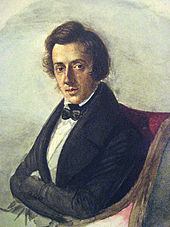 through the works of pianists whose anniversaries fall around this date: we’ve been neglecting the interpreters for quite a while, and this is a good time to catch up. Most of these pianists are of the older generation when Chopin’s piano music was more popular and more often played than it is today. Their lives coincide with the early era of the recording industry, so the technical quality of some of the pieces we’ll hear today is not high, while the musicianship is, even if their approach may seem very different than what we hear today.
through the works of pianists whose anniversaries fall around this date: we’ve been neglecting the interpreters for quite a while, and this is a good time to catch up. Most of these pianists are of the older generation when Chopin’s piano music was more popular and more often played than it is today. Their lives coincide with the early era of the recording industry, so the technical quality of some of the pieces we’ll hear today is not high, while the musicianship is, even if their approach may seem very different than what we hear today.
We’ll start with Benno Moiseiwitsch, born February 22nd of 1890 in Odessa (now Odesa), then in the Russian Empire and now in independent Ukraine. He started his studies in Odessa, then moved to Vienna to study with Theodor Leschetizky and eventually settled in England. Moiseiwitsch had a flourishing international career and for a while taught at the Curtis Institute of Music. Here’s Benno Moiseiwitsch performing Chopin’s Barcarolle, Op. 60. We like it a lot: the playing is elegant, the tone is singing. We don’t know the exact recording date but think it was made around 1950.
Alexander Brailowsky was also born in Ukraine, then part of Russia, and like Moiseiwitsch, he was Jewish. He was six years younger (his birthday is February 16th of 1896) and born in Kiev (now Kyiv). After studying at the Kiev Conservatory, he also went to Vienna to take lessons from Leschetizky. He then studied with Ferruccio Busoni in Switzerland and eventually settled in New York while getting French citizenship sometime later. Brailowsky was known for his interpretation of Chopin; in 1924 in Paris, he played 160 of his compositions in six concerts; then in 1938, he repeated the same program in New York (no established pianist would even consider such a programming choice these days). Here he is playing Chopin’s Nocturne Op. 9 No. 1. We believe the recording was made around 1957.
Nikita Magaloff was born in Saint Petersburg on February 21st of 1912 into a noble Georgian family. His family left Russia in 1918, following the Bolshevik Revolution. He studied at the Paris Conservatory where he befriended Ravel. Prokofiev also lived in Paris during that time and gave Magaloff composition lessons. Like Brailowsky, Magaloff was a “Chopinist”: he also performed all the piano music of Chopin in six concerts, but if Brailowsky did it twice, Magaloff did it many times. Magaloff was a noted teacher, starting in 1949 with a masterclass he picked up from his friend, the ailing Dinu Lipatti; Martha Argerich was one of his students. He married the daughter of the violinist Joseph Szigeti and often performed with the great violinist. Here’s Nikita Magaloff plays Chopin’s Nocturne Op. 9, No. 2. The recording was made in 1974.
Our last pianist is the only one not born in the Russian Empire: it’s Myra Hess. She’s also not famous for her Chopin, even though she played him a lot. Hess was born in London on February 25th of 1890. She was known for her interpretation of Bach and the Viennese classics, and even more so, for the free concerts of classical music she organized during WWII at the National Gallery. Here is her early recording of Chopin’s Nocturne in F sharp major, Op 15, No. 2. It was made in 1928.Permalink
This Week in Classical Music: February 17, 2025. Handel and Kurtág. The great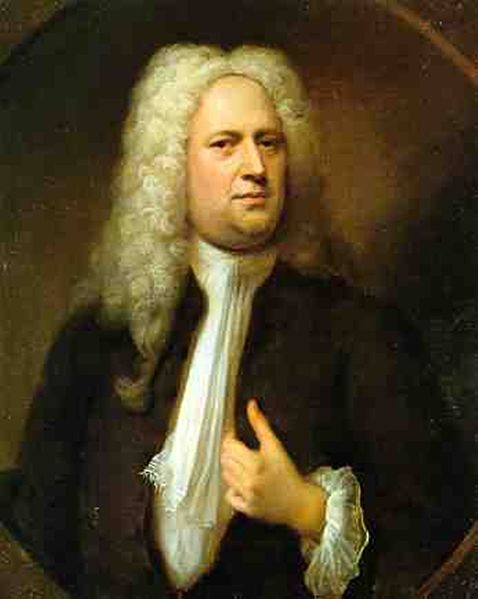 was born on February 23rd of 1685. In one year, between 1724 and 1725, while Handel was the “Master of the orchestra” at the Royal Academy of Music in London, he created three very successful operas, Rodelinda, Giulio Cesare, and Tamerlano. Each of these operas had his favorite singers in leading roles: the castrato Senesino, and the soprano Francesca Cuzzoni. The aria Dove sei, amato bene? (Where are you, my dear?), from Act I of Rodelinda was written for Senesino and is performed here by the wonderful countertenor Andreas Scholl. The supporting Accademia Bizantina is led by Ottavio Dantone.
was born on February 23rd of 1685. In one year, between 1724 and 1725, while Handel was the “Master of the orchestra” at the Royal Academy of Music in London, he created three very successful operas, Rodelinda, Giulio Cesare, and Tamerlano. Each of these operas had his favorite singers in leading roles: the castrato Senesino, and the soprano Francesca Cuzzoni. The aria Dove sei, amato bene? (Where are you, my dear?), from Act I of Rodelinda was written for Senesino and is performed here by the wonderful countertenor Andreas Scholl. The supporting Accademia Bizantina is led by Ottavio Dantone.
Last week we celebrated the 98th birthday of Leontyne Price; this week it’s György Kurtág’s turn: in two days he will be 99! György Kurtág (his first name is pronounced closer to Dyerd rather than George) was born on February 19th of 1926 in Lugoj, Banat. Most of the historical Banat now belongs to Romania, but before the dissolution of Austria-Hungary in 1918, Banat was part of the Austro-Hungarian empire, and the majority of its inhabitants were Hungarian speakers. It also had a large Jewish population; Kurtág himself is half-Jewish. He spoke Hungarian at home and Romanian at school. As a child, he studied the piano on and off, first with his mother and then with professional teachers. After WWII, in 1946, the 20-year-old Kurtág moved to Budapest and continued taking piano lessons, eventually entering the Franz Liszt Music Academy. There he met György Ligeti and they became friends for life (Ligeti, who died in 2006, was also of Hungarian-Jewish descent, and also born in a part of Austria-Hungary that now lies in Romania; he rivals Kurtág as one of the most important classical composers of the second half of the 20th century). After the Hungarian Revolution of 1956, Kurtág moved to Paris. There he studied with Olivier Messiaen and Darius Milhaud. He returned to Hungary in 1959 and stayed there for the duration of the Communist regime – the only Hungarian composer of international renown to do so (Ligeti, for example, fled to Vienna right after the failed revolution and stayed in the West for the rest of his life). At that time Kurtág became influential as a teacher. Surprisingly, he didn’t teach composition but rather interpretation: pianists Zoltán Kocsis and András Schiff, and the first Takács String Quartet were among his pupils. Kurtág resumed traveling only after the fall of communism in 1989, moving first to Berlin (he was the composer in residence for the Berlin Philharmonic in the mid-90s), then Vienna, the Netherlands and Paris, where he worked with Boulez’s Ensemble Intercontemporain. In 2002, the Kurtágs settled in Bordeaux but in 2015 he and his wife returned to Budapest (Kurtág’s wife Márta, a pianist, died in 2019).
Last week, when we played Luigi Nono’s Con Luigi Dallapiccola, we marveled at how a piece of interesting music could be created by limited means, in Nono’s case, an ensemble of percussion instruments. Here is another example, a piece by Kurtág titled...quasi una fantasia... (Kurtág likes ellipses in his titles). It was written in 1988. Very different from Nono’s, it is also very economical in how Kurtág uses different instruments. The piano, for example, works more as a percussion, rather than the Romantic instrument capable of creating a wall of sound. In this recording, Bahar Dördüncü is the pianist. We don’t know the name of the ensemble.
We should mention Arcangello Corelli, who was born on this day in 1653. And Luigi Boccherini was also born this week, on February 19th of 1743.Permalink
This Week in Classical Music: February 10, 2025. Still Catching Up. We’ve missed several important anniversaries during the last month and would like to acknowledge some of them now. But first, today is the birthday of Leontyne Price, one of the greatest sopranos of the 20th century. She’s with us and turned 98 today!
But first, today is the birthday of Leontyne Price, one of the greatest sopranos of the 20th century. She’s with us and turned 98 today!
But back to the missed anniversaries. The Italians constitute the largest group. First, two important 20th-century composers: Luigi Dallapiccola, born on February 3rd of 1904, and Luigi Nono, born January 29th of 1924. We posted two entries on Dallapiccola last year (here and here). Last year was Nono’s 100th anniversary but we failed to commemorate the event appropriately. So, here's a short outline of Nono’s life and work.
Luigi Nono was born on January 29th of 1924 in Venice..jpg) He studied at the Liceo Musicale with the noted composer Gian Francesco Malipiero. In 1946 he met Bruno Maderna, one of the first avant-garde Italian composers. Maderna was only four years older but more established; as he and Nono were working in Venice, and a small community of musicians organized themselves around them. Dallapiccola, of an older generation but a friend of both, had a significant influence on their development.
He studied at the Liceo Musicale with the noted composer Gian Francesco Malipiero. In 1946 he met Bruno Maderna, one of the first avant-garde Italian composers. Maderna was only four years older but more established; as he and Nono were working in Venice, and a small community of musicians organized themselves around them. Dallapiccola, of an older generation but a friend of both, had a significant influence on their development.
Several early works by Nono were presented at the Darmstadt Summer Courses for New Music, the most important gathering of new composers. Soon after he became an active participant and, together with Boulez and Stockhausen, one of the leaders of the new music movement. In 1955 he married Nuria Schoenberg, daughter of Arnold Schoenberg. Nono was a leftist, as were many of his fellow composers. A principled anti-fascist, he went much further to the left than many. For example, his opera Al gran sole carico d'amore, (the libretto for which he co-wrote with Yuri Lyubimov, the director of the original production and also the director of the famous Moscow Taganka theater), was loosely based on plays by Bertolt Brecht and contained excerpts of speeches by Fidel Castro, Che Guevara, Karl Marx and Lenin. Some of his music composed during the 60s was extremely political and dogmatic. For example, his Non Consumiamo Marx consists of sounds recorded during the 1968 student uprising in Paris and a voice reading the messages left on the walls during that period. A much more interesting piece was his Prometeo, tragedia dell’ascolto composed over several years in the early 1980s, the period when his work became less political. Prometeo is called “opera,” although the word should be taken in its original Italian sense, “work” – it is a composition for five singers, two speakers, a chorus, and a small orchestra, with sounds being electronically manipulated. To celebrate both Nono and Dallapiccola, here is Luigi Nono’s piece from 1979, Con Luigi Dallapiccola, performed by the ensemble Percussions de Strasbourg. It’s about 12 minutes of different sound effects created by the different percussion instruments; we think there’s more music here, however unusual it is, than in many established compositions.
And then there is another Italian, Giovanni Pierluigi da Palestrina, one of the greatest composers of the Renaissance. He was born between February 3rd of 1525 and February 2nd of 1526. We don’t play him often enough, so no matter when his actual birthday was, here is Palestrina’s late motet, Peccantem me quotidie (I sin every day). Ensemble The Sixteen is led by their founder, Harry Christophers.Permalink
This Week in Classical Music: February 3, 2025. Post-Scriabin, catching up. For the whole month of January, we were preoccupied with Scriabin and his common-law wife, Tatiana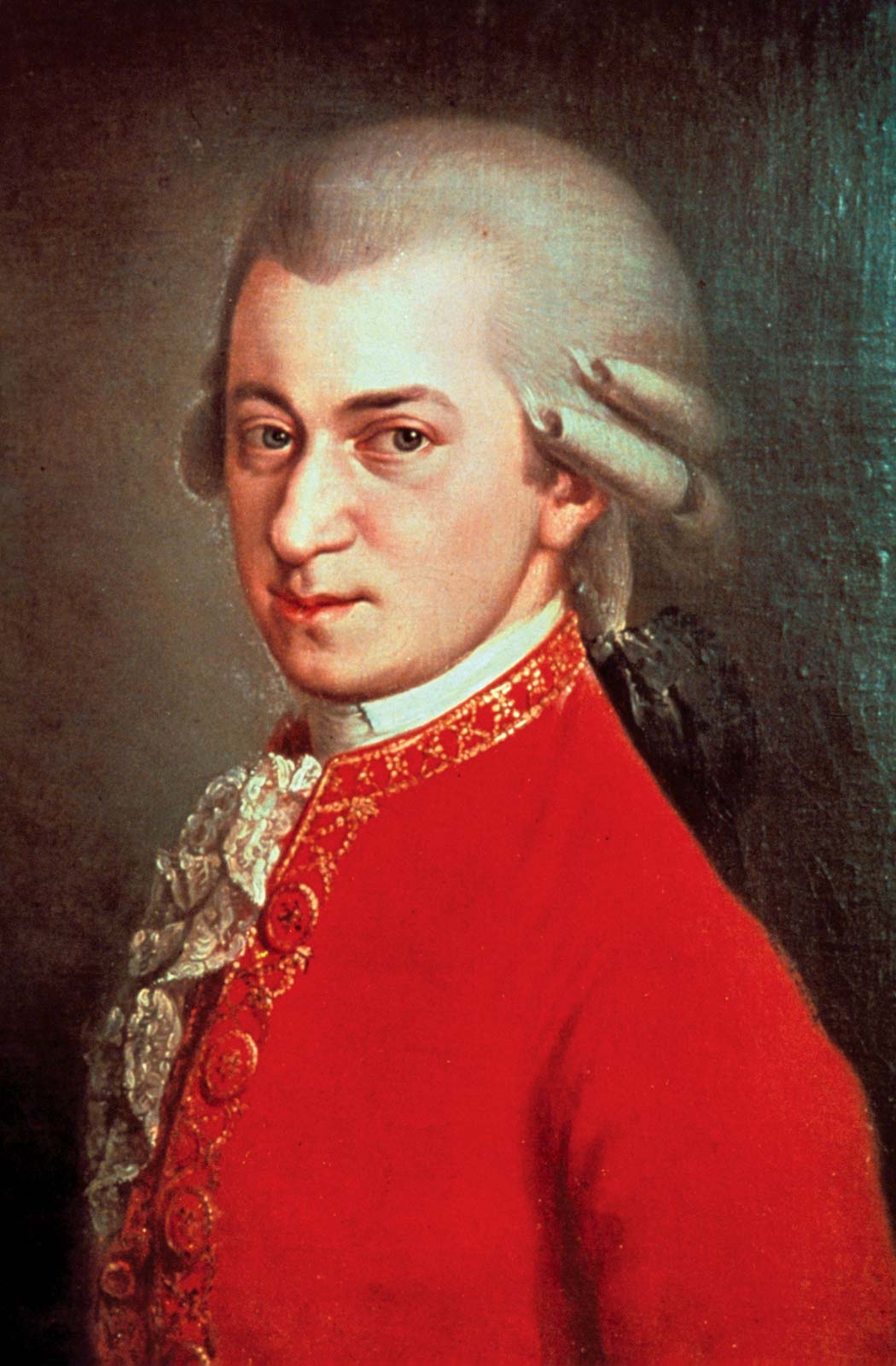 Schloezer. We concede that we may have overdone it a bit, but many aspects of Scriabin’s story are fascinating. He was a complicated, difficult person, a terrible egocentric. He was also very talented. His music, once he got away from copying Chopin, was highly original and fascinating – as much today as when it was written. He attempted to expand the experience of listening to music by combining sound with light; this may not have worked as he expected, but the experiments were intriguing (the philosophy and poetics, with which he tried to imbue his music, were much less successful). And he had tremendous support from Tatiana, whose exalted adoration sustained him for many difficult years in Russia and abroad.
Schloezer. We concede that we may have overdone it a bit, but many aspects of Scriabin’s story are fascinating. He was a complicated, difficult person, a terrible egocentric. He was also very talented. His music, once he got away from copying Chopin, was highly original and fascinating – as much today as when it was written. He attempted to expand the experience of listening to music by combining sound with light; this may not have worked as he expected, but the experiments were intriguing (the philosophy and poetics, with which he tried to imbue his music, were much less successful). And he had tremendous support from Tatiana, whose exalted adoration sustained him for many difficult years in Russia and abroad.
Scriabin was also a part of Russian culture at a historical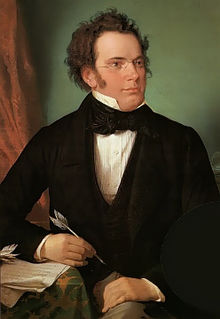 high point; he knew many key people and was admired by many, from the contemporary composers, Rachmaninov, Prokofiev, and even Stravinsky, grudgingly, to poets like Balmont, Mandelstam and Tsvetaeva. His life was short (he died at the age of 43 after a furuncle led to blood poisoning) and so was the life of some of his children, two of whom, from his “official” wife, died at the age of seven, while musically gifted Julian, his and Tatiana’s son, drowned at the age of 12. Their daughter Ariadna, a poet and active member of the Russian post-Revolutionary diaspora, became a Zionist, converted to Judaism, founded a French Resistance group Armée Juive during the occupation, and was killed by a French Nazi collaborator shortly before France was liberated. Tatiana Schloezer died in Moscow in 1922 at the age of 39.
high point; he knew many key people and was admired by many, from the contemporary composers, Rachmaninov, Prokofiev, and even Stravinsky, grudgingly, to poets like Balmont, Mandelstam and Tsvetaeva. His life was short (he died at the age of 43 after a furuncle led to blood poisoning) and so was the life of some of his children, two of whom, from his “official” wife, died at the age of seven, while musically gifted Julian, his and Tatiana’s son, drowned at the age of 12. Their daughter Ariadna, a poet and active member of the Russian post-Revolutionary diaspora, became a Zionist, converted to Judaism, founded a French Resistance group Armée Juive during the occupation, and was killed by a French Nazi collaborator shortly before France was liberated. Tatiana Schloezer died in Moscow in 1922 at the age of 39.
So, while we attended to all these happenings, we missed two big birthdays. The first one, on January 27th, was that of Mozart. And then, on the 31st of January, was Franz Schubert’s birthday. Fortunately, we covered both of them many times and have hundreds of pieces of their music in the library. Both composers were tremendously prolific, even though both had tragically short lives (Mozart died at the age of 35, Schubert – at 31), both created numerous masterpieces. We’ll celebrate them with two vocal pieces: the trio Soave sia il vento, from the first act of Mozart’s Cosi fan tutte (here), and the song An die Music by Schubert (here). Nothing can be better than this. Permalink